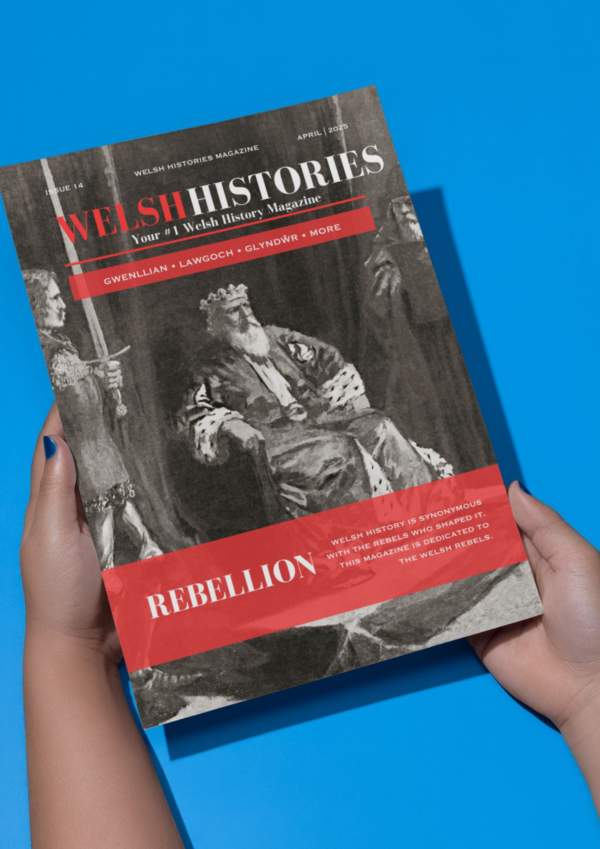Your basket is currently empty!
Boudica: The Celtic Queen Who Reflects Wales’ Ancient Fight for Freedom
Buddug (better known by the simplified Latin name “Boudica”) was an ancient Iceni Briton, albeit from what would today be the region of East Anglia (England), and would have spoken a Brittonic language – the ancestral tongue of the present Welsh language.

For many, the name Buddug resonates within Cymru and its history (as well as its folklore) as a warrior queen who led a rebellion against Roman rule in the 1st century AD.
This, of course, also resonates with the present Welsh people (and those of recent centuries past) because she symbolises the Welsh struggle against oppression (whether Latin, Saxon, Norman or Anglo) better than almost any other figure.
Buddug was born into the Iceni tribe, a Celtic people who inhabited a region in eastern Britain – most notably Norfolk. Buddug’s connection to Cymru is rooted in the broader context of Celtic culture.
The Celtic people shared linguistic and cultural ties that transcended modern geographical boundaries. Cymru, like other parts of ancient Britain, was inhabited by Celtic tribes with shared customs, art, and language.

It is, therefore, not wrong for the Welsh to claim Buddug as one of their own – just as it is not wrong for a Celtic heritage leaning someone from, say, Norfolk to similarly claim Buddug as one of their own.
It would be wrong to deny an English person their own Celtic heritage as many within England will have ancient Briton ancestors, just as many within Cymru will have Norman and Saxon ancestors – even the most ardent of Welsh nationalist is very likely to have an ancestor who could be likened to an oppressor!
It must be said, however, that the island of Great Britain at this time was Celtic (though with a growing Latin influence) and the lands of England and Cymru were occupied by Brythonic peoples who spoke a language far more similar to Welsh than to the later, non-native language of English – which would arrive centuries later with the Saxons and continue evolving following their arrival.

In AD 60 or 61, Buddug famously led a rebellion against Roman forces, incited by mistreatment and the seizure of her family’s property.
Her fierce resistance led to the sacking of several Roman settlements, including Camulodunum (modern Colchester), Londinium (London), and Verulamium (St Albans).
Some might argue that Buddug’s Rebellion was the first great “Welsh” rebellion of its kind – one which would inspire later Welsh rebellions, from the likes of Llywelyn and Dafydd ap Gruffudd against the Norman King Edward I and his Conquest of Wales, to the later Uprising of Owain Glyndŵr against the Plantagenet Kings of England (Henry IV and V).
Each of these rebellions, Buddug’s included, possesses the theme of the valiant Welsh hero failing in their war, though succeeding in the immortalisation of their name and legacy.
Buddug’s legacy extends far beyond her military campaigns. She has come to symbolise the spirit of resistance and defiance against oppression.
Her story resonates with the struggle for freedom and self-determination, much like the later heroes who would take up battle against the oppressive, conquering forces who followed the Roman example.
While Buddug’s specific origins remain a historical mystery, her story serves as a reminder of the interconnectedness of Celtic peoples in ancient Britain.
The ties of language, culture, and shared heritage transcended geographical borders and very much still do.
“‘We British are used to women commanders in war… I am descended from mighty men! But I am not fighting for my kingdom and wealth now.
I am fighting as an ordinary person for my lost freedom, my bruised body, and my outraged daughters… Consider how many of you are fighting and why! Then you will win this battle, or perish.
That is what I, a woman, plan to do!—let the men live in slavery if they will.’” – Tacitus, Annals (XIV.35).
Shop new arrivals
-
(UK + EU) YEARLY Subscription Welsh Histories Magazine
£79.99 -
(US & CAN ONLY) YEARLY Subscription Welsh Histories Magazine
£129.99 -
DIGITAL COPY Welsh Histories Magazine – April 2024
£0.99 -
DIGITAL COPY Welsh Histories Magazine – April 2025
£2.99 -
DIGITAL COPY Welsh Histories Magazine – August 2024
£1.99
More from Welsh Histories
Welsh Histories is a Welsh history celebrating platform which looks to promote all aspects of Welsh history. Though we focus predominantly on native Welsh history, we do also share the non-native aspects from time to time. You can follow us on Facebook; Instagram or Twitter for more. A reader? We also have our very own Welsh Histories Shop where we sell our Welsh Histories Magazine. Diolch yn fawr iawn and keep enjoying Welsh Histories.
Niklas is the founder, owner, manager, editor, writer, video creator, voice over artist, and so forth, of Welsh Histories. He is passionate about the preservation of Welsh culture; the rejuvenation of the Welsh language and the promotion of Welsh history. Niklas currently resides in Pune, Maharashtra, with his beloved wife.





